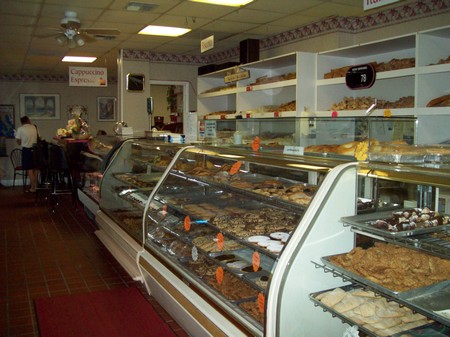One of the interesting things that happens when you become a freelance or set up your own business is that other people frequently confide in you their version of the business of their dreams. Often they are doing just that – dreaming, and have no intention of attempting to make it come true. (Indeed some people dream and are on the brink of taking the plunge for so long that one comes to the conclusion that they are super-glued to the diving board.)
Sometimes their dream, if they were to implement it, would in fact be a nightmare. (I mean, have you ever really thought through what it would be like to run a pub in the country? It would be like opening up your living room to the same people every night whether you like them or not. And there are no police and no brewery overlord to enforce the licensing laws, so these people will stay until they want to go. Oh, and your hours are nine in the morning until, say, midnight, and that’s on a good day.)
Get your attitude right
Face it, if you are going to open your art gallery in Bond Street, you will need a lot of capital and an encyclopaedic knowledge of the international art market. Even then, your lack of experience in the retail business will almost certainly be your, very expensive, downfall. We are not talking mega-corporations here, rather starting off with one shop in a less than centrally located area of town or village. Most dreamers have to make it happen with very little capital. And that seems to be the first clue; this is a long-term plan and a long-term commitment. Think ten years to the end of the project, and a first business plan of, say, three years. If your actions are dictated by short-term considerations you may get over the teething problems quite well, but struggle with the follow up. It is much better to know the next step in advance and concentrate on that.
Some people say that knowing the exit strategy after the ten-year plan is important, others that such a plan will become clearer as time passes.
The only thing unanimously called a mistake in this regard was to have huge riches as the end game. The rewards may be huge, there is always a chance, but your first objective is to earn enough for the lifestyle you dream of.
Then ask yourself, ‘Do I passionately want to do it?’ The attribute that ties together all the successful people doing this is that there are strong positive reasons for turning their passion into a business as well as the negative reasons concerned with getting out of the rat race. You are going to have to sell things, it’s not like working in a chemist shop; it’s about getting to know your customers and helping them to buy. If you use high-pressure selling technique, you will at best sell one thing to each person who comes into the shop. But they will not come back. So the thing that sells for you is your knowledge and, dare I say it, love for the product. They buy because they trust you when you say, ‘This is good, and has a good provenance.’ That is how you will build up the essential customer relationships that provide repeat purchases, if you are in retail, or references to other customers if you are on the consultancy side.
Now, I said that running a country pub is more like a nightmare than a dream, but don’t underestimate the time commitment to any retail business. You never know when this month’s big customer will come through the door, so it has to be open when people expect it to be open and some other times as well. This means that you almost certainly need a partner. A partner with a similar passion is ideal, as is the family business. You also have to face the fact that taking holidays will always be difficult and in the early years impossible. Even after some time it will still be difficult to get away for more than a week. You will just never find someone to take over with the same background knowledge and commitment as you. After all, that is what you are selling.
